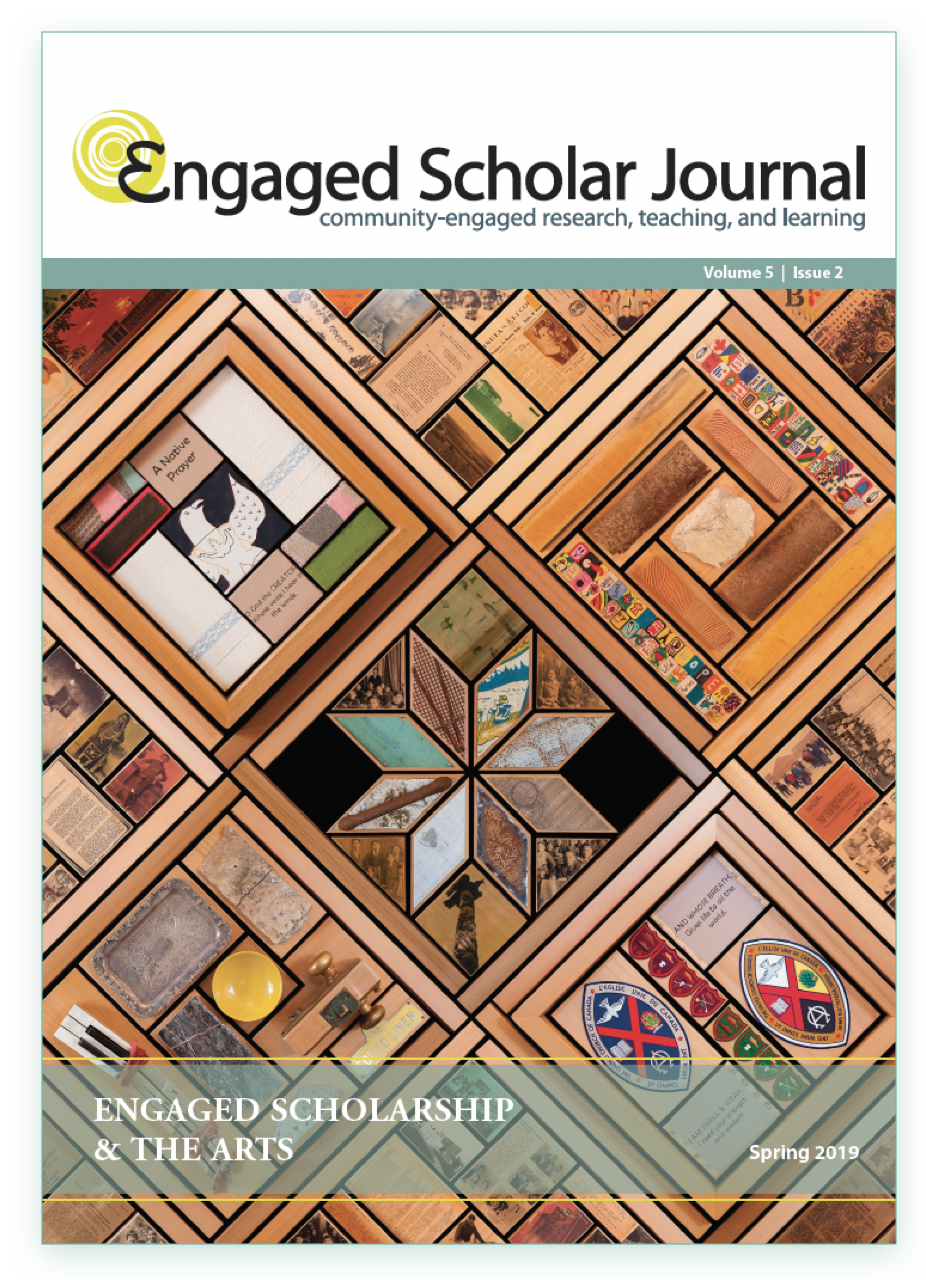“Just” Stories or “Just Stories”?: Mixed Media Storytelling as a Prism for Environmental Justice and Decolonial Futures
DOI:
https://doi.org/10.15402/esj.v5i2.68333Keywords:
Mixed media storytelling, environmental justice, Indigenous youth, relational research, arts of engagementAbstract
Our lives and the lives of those we study are full of stories. Stories are never mere stories. Qualitative researchers who document, hear, and listen to participant lived-experiences encounter and witness the intimate spaces of people’s everyday lives. Researchers thus find themselves in the position of translator between diverse communities: those affected by policies, the academy and public officials. For academic-activists committed to listening to situated stories in order to improve public policy, several critical questions emerge: How do we do justice to these stories? What are the ethics of engagement involved in telling stories about those who share their knowledges and lived-experiences with us? Can storytelling bridge positivist and post-positivist research methods? Do policymakers listen to stories? How? What can researchers learn from Indigenous storytelling methods to envision decolonial, sustainable futures? To respond to these critical questions, this paper draws from literature in community-engaged research, critical policy studies, interpretive research methods, Indigenous research methods, political ethnography, visual methods and social justice research to argue that stories arenever simply or just stories, but in fact have the potential to be radical tools of change for social and environmental justice. As will be discussed with reference to three mixed media storytelling projects that involved the co-creation of digital stories with Indigenous communities in Canada, stories can intervene on dominant narratives, create space for counternarratives and in doing so challenge the settler-colonial status quo in pursuit of decolonial futures.
Downloads
Published
How to Cite
Issue
Section
License
Authors who publish with this journal agree to the following terms:
- Authors retain copyright and grant the journal right of first publication with the work simultaneously licensed under a Creative Commons Attribution License CC BY 4.0 that allows others to share the work with an acknowledgement of the work's authorship and initial publication in this journal.
- Authors are able to enter separate, additional contractual agreements for the non-exclusive distribution of the journal's published version of the work (e.g., post it to an institutional repository or publish it in a book), with an acknowledgement of its initial publication in this journal.
- Authors are permitted to post their work online (e.g., in an institutional repository or on their website) after the publication of their work in the Engaged Scholar Journal.
- Please note that while every opportunity will be taken to ensure author participation in the editing process, due to time constraints final copyediting changes may be made before publication to ensure APA adherence throughout all submissions.




